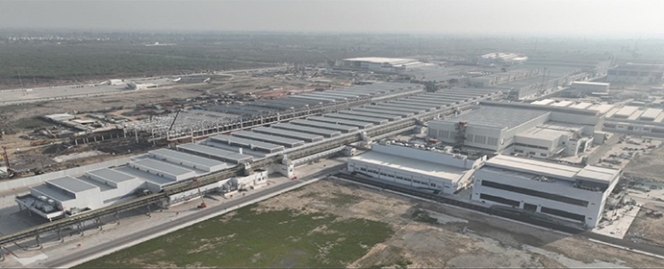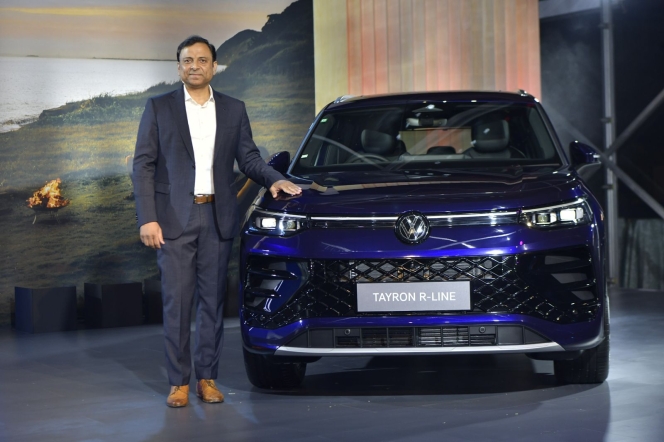- 1934 Rolls-Royce 20/25 Limousine
- 1946 Singer Nine Roadster
- 1946 Bentley Mark VI
- 1947 Lincoln Continental V12 Convertible
- 948 Jaguar Mark IV
- AstaGuru
Iconic Vintage Cars Take Centre Stage at AstaGuru’s Upcoming ‘Classics of Motoring’ Auction
- By Rommel Albuquerque
- November 19, 2024

AstaGuru will showcase some of the world’s most coveted vintage and classic cars at its upcoming ‘Classics of Motoring’ auction, which will take place from 20 to 22 November 2024.
The auction will offer an exclusive collection of rare and meticulously curated vintage cars, providing a unique opportunity for collectors and automotive enthusiasts to acquire iconic pieces of automotive history.
The auction will feature an impressive lineup of vehicles, including a 1934 Rolls-Royce 20/25 Limousine, a 1946 Singer Nine Roadster, a 1946 Bentley Mark VI, a 1947 Lincoln Continental V12 Convertible and a 1948 Jaguar Mark IV, among others. These stunning machines, each a testament to the engineering marvels of their era, promise to transport bidders back in time, celebrating the golden age of motoring.
A Growing Market in India
AstaGuru’s Vintage and Classic Car Specialist, Muzammil Kazi, shared his insights on the evolution of the vintage car market in India. “We did our first auction in 2018, and it was a surprising success,” Kazi noted. “At the time, these cars weren’t available online or marketed in the way they are now. You’d have to go to a dealer or connect with a seller directly, which made it hard to find these rare cars. But our first auction was a hit, with all lots selling successfully.”
The vintage car market in India, according to Kazi, is far from saturated. “The market is 100 percent growing. These cars were imported to India in limited quantities, and you wouldn’t find brands like Ford or General Motors here in the same way as abroad. Cars like the Fiat, Ambassador, or old Maruti SS80 were more common, but the rare vintage gems we are showcasing today are difficult to find.”
Kazi also emphasised that the scarcity of such cars means the market still has significant potential for growth. “The cars we have on display today are curated from various collectors across India, and it’s very rare to see them come together in one auction,” he explained.
Safeguarding Online Bidders
AstaGuru’s online auction platform also ensures that bidders are fully protected throughout the process. “We have a strong set of terms and conditions for the cars we sell,” Kazi explained. “We only auction cars with up-to-date paperwork and in proper running condition. Once a car is sold, we ensure the buyer receives it only after the seller submits a No Objection Certificate (NOC), making the transaction smooth and secure.”
Record-Breaking Bids
The auction has seen some impressive bids in the past. Kazi highlighted one of the highest bids to date: a Mercedes-Benz 111 230S, which was estimated at INR 2.1 million but eventually sold for INR 6.8 million. Another standout was a Rolls-Royce, which had an estimated value of INR 7-8 million but sold for a remarkable INR 18 million.
A Rare Opportunity for Collectors
For classic car enthusiasts and connoisseurs, the ‘Classics of Motoring’ auction represents an unmissable opportunity to acquire some of the rarest and most beautifully restored vehicles in the world. With its rich history and pedigree, each car in the auction is a testament to the artistry and engineering excellence that defined its era. Whether a seasoned collector or a newcomer to the world of vintage automobiles, this event promises a truly memorable experience for all involved.
As the vintage car market continues to grow in India, AstaGuru is setting the stage for an exciting future for collectors and car lovers alike. The ‘Classics of Motoring’ auction is expected to draw attention from around the world, offering a rare chance to own a piece of automotive history.
Hyundai Motor India Reports INR 123 Billion Profit In Q3 FY2026
- By MT Bureau
- February 02, 2026

Hyundai Motor India (HMIL) has released its unaudited financial results for Q3 FY2026 and nine months ending 31 December 2025.
The company reported a Profit After Tax (PAT) of INR 123.44 billion for Q3, representing a 6.3 percent increase YoY. Revenue for the quarter reached INR 1,797.35 billion, up 8 percent compared to the same period last year. EBITDA stood at INR 2,018.3 billion, a 7.6 percent rise, supported by festive demand and the implementation of GST 2.0.
The company stated that the domestic demand was supported by wholesale volumes increasing 5 percent QoQ. The Hyundai Creta recorded sales of over 200,000 units in the 2025 calendar year, while the new Venue model has received nearly 80,000 bookings to date.
Hyundai Motor India also entered the commercial mobility segment with the Prime HB and SD taxi models. Exports grew by 21 percent YoY in Q3 FY26, accounting for 25 percent of the total sales mix.
For the nine-month period, EBITDA reached INR 6,632.5 billion, a 3.3 percent increase. EBITDA margins expanded to 12.8 percent, up from 12.5 percent in the previous year, despite costs related to capacity stabilisation and commodity prices.
Tarun Garg, Managing Director & Chief Executive Officer, said, “The third quarter performance underscores our resilience and strong execution of 'Quality of Growth' strategy, marked by healthy growth in volumes, revenue and profitability. Notably on a year-to-date basis, EBITDA margins expanded to 12.8 percent as against 12.5 percent last year, supported by our efforts towards improving sales mix and prudent cost control measures. As we move ahead, the robust January’26 sales number gives us great momentum towards a healthy 2026.”
|
Particulars |
Q3 FY26 |
Q2 FY26 |
Q3 FY25 |
9M FY26 |
9M FY25 |
|
Revenue |
179,735 |
174,608 |
166,480 |
518,472 |
512,526 |
|
EBITDA |
20,183 |
24,289 |
18,755 |
66,325 |
64,211 |
|
EBITDA % |
11.2% |
13.9% |
11.3% |
12.8% |
12.5% |
|
PAT |
12,344 |
15,723 |
11,607 |
41,759 |
40,259 |
Jeep Reaffirms India Commitment With Strategic Plan Jeep 2.0
- By MT Bureau
- February 02, 2026

Stellantis-owned Jeep has announced its Strategic Plan Jeep 2.0, positioning India as a central hub for its operations in the Asia Pacific region. The plan focuses on localisation, manufacturing depth, and export expansion from the company's facility in Ranjangaon, Pune.
As part of the strategy, Jeep intends to increase localisation levels to 90 percent, up from the current 65–70 percent. This move is aimed at strengthening supply-chain resilience and cost competitiveness. The Ranjangaon plant, which has an annual capacity of 160,000 vehicles, currently exports the Compass, Meridian, and Commander to markets including Japan, Australia and New Zealand. Plans are underway to expand exports to Africa and North America.
The company plans to introduce a new vehicle lineup in India starting from 2027. In the interim, Jeep will maintain its current portfolio through refreshes and special editions. To support its customers, the brand has introduced the Confidence 7 programme, which includes a buyback scheme, pre-maintenance packages, and extended warranties.
At present, Jeep operates over 85 sales and service touchpoints across 70 cities in India. The automaker stated that in 2025, the Wrangler Willys 41 limited edition sold out within seven days. The company is also focusing on its owner community, which has reached 100,000 members, through experiential platforms and brand clubs.
Shailesh Hazela, CEO & Managing Director, Stellantis India, said, “Jeep’s 85-year legacy is built on authenticity and adventure. Strategic Plan Jeep 2.0 lays out how we will sharpen our product strategy and strengthen the customer experience year after year, driven by deeper localisation, global product alignment, expanding our vehicle offerings, and programs that deliver real value. We are equally focused on taking care of our existing customers, ensuring they receive the support, service and confidence they expect from Jeep. Success in India demands resilience and long-term commitment and we are investing with that clarity to ensure Jeep remains a brand of pride and desirability.”
Maruti Suzuki India Reports INR 37.94 Net Profit For Q3 FY2026
- By MT Bureau
- January 28, 2026

Maruti Suzuki India, the country’s largest passenger vehicle manufacturer, has reported its financial results for Q3 FY2026.
The company reported revenue of INR 475.344 billion, as against INR 368.02 billion last year, net profit came at INR 37.94 billion, as against INR 36.59 billion last year. It is to be noted that the net profit was impacted for Q3 FY2026 was impacted due to a one-time provision of INR 5,939 million relating to new Labour Codes.
During the period, the company achieved its highest quarterly domestic sales of 564,669 units, an increase of 97,676 units over the previous year. Total sales reached 667,769 units, which included 103,100 units in exports. This performance was supported by a recovery in the car market following GST reform, with the small car segment in the 18 percent GST bracket contributing significantly to the volume increase.
For the nine-month period from April to December 2025, the company recorded its highest sales volume, net sales and net profit. Total sales volume reached 1,746,504 units, with domestic sales at 1,435,945 units and exports at 310,559 units. Net sales for this period increased to INR 1,242 billion, while net profit grew to INR 1,085 billion.
Financial statements for the period have been restated following the amalgamation of Suzuki Motor Gujarat (SMG) with MSIL. This process took effect from 1 April 2025. The company continues to monitor market conditions as it manages its manufacturing and sales operations.
The recovery in the car market was led by the small car segment. Sales growth in this category accounted for 68,328 units of the total domestic increase. The company remains focused on domestic and export markets to maintain its sales volumes.
Volkswagen India Unveils Tayron R-Line, Plans 4 More Launches In 2026
- By MT Bureau
- January 28, 2026

Volkswagen Passenger Cars India has showcased the Tayron R-Line, marking the first of five product interventions scheduled for 2026.
The company plans to introduce updates or new models in every quarter to maintain market presence. These interventions will include SUV, Sedan and Hatchback body styles, with each model intended for different segments of the premium market.
For 2026, the company stated it has established objectives focused on products, customer engagement and experiences. The strategy involves using product actions to address various customer sets throughout the year. The brand aims to sustain interest through these quarterly releases across its vehicle portfolio.
The roadmap for the year is designed to cover multiple segments, ensuring a consistent rollout of updates. By addressing three body styles, the manufacturer intends to reach a broad audience within the premium category. The initiative forms part of a wider plan to enhance the ownership experience and interaction with the brand in India.
Nitin Kohli, Brand Director, Volkswagen Passenger Cars India, said, “Today, we are glad to showcase the Tayron R-Line for the first time in India. I am also delighted to announce that we have planned four more product interventions throughout the year. This year, every quarter will witness a new product intervention that will cater to a different premium customer set. Our objective is to continue building excitement for customers through smart product actions and introducing models that will continue to build aspirations.”







Comments (0)
ADD COMMENT